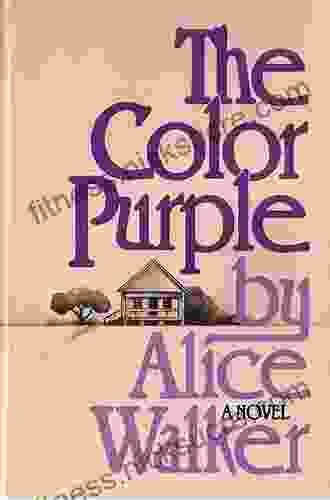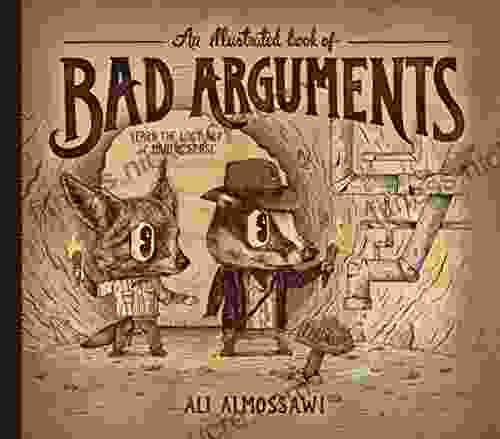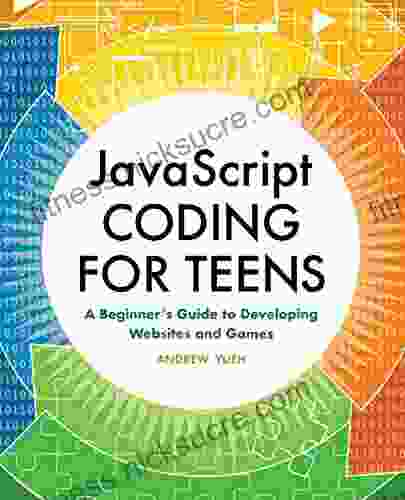An Illustrated Guide to Identifying and Avoiding Bad Arguments

In the age of information overload and social media echo chambers, it's more important than ever to be able to identify and avoid bad arguments. Bad arguments can lead to misinformed decisions, polarization, and even violence.
4.4 out of 5
| Language | : | English |
| File size | : | 19878 KB |
| Text-to-Speech | : | Enabled |
| Screen Reader | : | Supported |
| Enhanced typesetting | : | Enabled |
| X-Ray | : | Enabled |
| Word Wise | : | Enabled |
| Print length | : | 66 pages |
| Lending | : | Enabled |
This guide will provide you with the tools you need to recognize and refute bad arguments, and to construct sound arguments of your own.
What is a Bad Argument?
A bad argument is one that is based on faulty reasoning or that uses misleading or false evidence. Bad arguments can be persuasive, but they are not valid.
Types of Bad Arguments
There are many different types of bad arguments, but some of the most common include:
- Ad hominem: This type of argument attacks the person making the argument, rather than the argument itself. For example, "You're just a liberal snowflake, so your opinion doesn't matter."
- Straw man: This type of argument misrepresents the opposing argument in order to make it easier to attack. For example, "You're saying that we should abolish the police, but that's just anarchy."
- Red herring: This type of argument introduces a new topic that is unrelated to the original argument in order to distract from the main issue. For example, "I know you're concerned about climate change, but what about the economy?"
- Circular reasoning: This type of argument uses the as evidence to support the premise. For example, "God exists because the Bible says so, and the Bible is true because it's the word of God."
- False dichotomy: This type of argument presents only two options, when in reality there are more. For example, "Either you're with us, or you're against us."
- Appeal to emotion: This type of argument uses emotional appeals, such as fear or pity, to persuade the audience, rather than rational arguments. For example, "If you don't vote for me, the terrorists will win."
- Appeal to ignorance: This type of argument claims that something is true because it has not been proven false, or vice versa. For example, "There's no evidence that aliens exist, so they must be real."
How to Identify Bad Arguments
There are a few key things to look for when trying to identify a bad argument:
- Fallacies: Fallacies are errors in reasoning that can lead to bad arguments. Some common fallacies include the ones listed above, as well as the bandwagon fallacy, the gambler's fallacy, and the sunk cost fallacy.
- Misleading or false evidence: Bad arguments often rely on misleading or false evidence to support their claims. Be sure to check the sources of any information you're considering, and be wary of claims that seem too good to be true.
- Emotional appeals: Bad arguments often use emotional appeals to persuade the audience, rather than rational arguments. Be aware of your own emotions when considering an argument, and don't let them cloud your judgment.
How to Avoid Bad Arguments
There are a few things you can do to avoid falling for bad arguments:
- Be aware of your own biases. We all have biases, but it's important to be aware of them so that they don't cloud our judgment.
- Consider the source of the information. Be wary of information from sources that are known to be biased or unreliable.
- Check the evidence. Don't just accept claims at face value. Check the sources of the evidence, and be critical of the way it's presented.
- Use logic and reason. When evaluating an argument, use logic and reason to determine if it's valid. Don't let your emotions get in the way.
Being able to identify and avoid bad arguments is an essential skill for critical thinking and informed decision-making. By following the tips in this guide, you can improve your ability to evaluate arguments and make sound decisions.
4.4 out of 5
| Language | : | English |
| File size | : | 19878 KB |
| Text-to-Speech | : | Enabled |
| Screen Reader | : | Supported |
| Enhanced typesetting | : | Enabled |
| X-Ray | : | Enabled |
| Word Wise | : | Enabled |
| Print length | : | 66 pages |
| Lending | : | Enabled |
Do you want to contribute by writing guest posts on this blog?
Please contact us and send us a resume of previous articles that you have written.
 Fiction
Fiction Non Fiction
Non Fiction Romance
Romance Mystery
Mystery Thriller
Thriller SciFi
SciFi Fantasy
Fantasy Horror
Horror Biography
Biography Selfhelp
Selfhelp Business
Business History
History Classics
Classics Poetry
Poetry Childrens
Childrens Young Adult
Young Adult Educational
Educational Cooking
Cooking Travel
Travel Lifestyle
Lifestyle Spirituality
Spirituality Health
Health Fitness
Fitness Technology
Technology Science
Science Arts
Arts Crafts
Crafts DIY
DIY Gardening
Gardening Petcare
Petcare David G Alciatore
David G Alciatore Mark Rippetoe
Mark Rippetoe Jonathan Carroll
Jonathan Carroll Richard H Coop
Richard H Coop William King
William King Nick Littlehales
Nick Littlehales Paul Asay
Paul Asay Lyanda Lynn Haupt
Lyanda Lynn Haupt William G Tapply
William G Tapply Sue Tidwell
Sue Tidwell Peter D Rogers
Peter D Rogers Eric Siegel
Eric Siegel Alice Steinbach
Alice Steinbach Nel Noddings
Nel Noddings Erica Lyon
Erica Lyon Elan Golomb
Elan Golomb Daniel Foor Phd
Daniel Foor Phd Jayson Georges
Jayson Georges Philip Freeman
Philip Freeman Neil J Salkind
Neil J Salkind Allison Saft
Allison Saft Joe Proulx
Joe Proulx Leslie Anthony
Leslie Anthony John C Hudson
John C Hudson Daniel Young
Daniel Young Erez Morabia
Erez Morabia Frank C Hawkins
Frank C Hawkins Joseph Henrich
Joseph Henrich Nick Mitchell
Nick Mitchell Paul Stephenson
Paul Stephenson Charles Murray
Charles Murray Alice Beck Kehoe
Alice Beck Kehoe Rachel Vitale
Rachel Vitale Gordon England
Gordon England John Pirillo
John Pirillo Penelope Leach
Penelope Leach Hicham And Mohamed Ibnalkadi
Hicham And Mohamed Ibnalkadi John Lohn
John Lohn Kynan Bridges
Kynan Bridges Tracy Anderson
Tracy Anderson Andrew Zimmern
Andrew Zimmern Ali Wong
Ali Wong Jill Simonian
Jill Simonian Zac Unger
Zac Unger Karl Wiegers
Karl Wiegers Judy Murray
Judy Murray Hape Kerkeling
Hape Kerkeling Executivegrowth Summaries
Executivegrowth Summaries Bear Grylls
Bear Grylls Laura Gauld
Laura Gauld Peter Gandy
Peter Gandy Dawn Brookes
Dawn Brookes Wendy Wood
Wendy Wood Sarah Bolitho
Sarah Bolitho Whitney Ferre
Whitney Ferre Dianna L Van Blerkom
Dianna L Van Blerkom Helen Hodgson
Helen Hodgson David A Ebert
David A Ebert Eric Kaplan
Eric Kaplan Keisuke Andrew
Keisuke Andrew Stephanie Mitchell Cnm Msn Dnp
Stephanie Mitchell Cnm Msn Dnp Emma Lock
Emma Lock Said Hasyim
Said Hasyim Frank J Tipler
Frank J Tipler Lisa Manterfield
Lisa Manterfield Dylan Farrow
Dylan Farrow Jay Golden
Jay Golden Carolyn Highland
Carolyn Highland Rosary O Neill
Rosary O Neill Arthur Ashe
Arthur Ashe Paul Green
Paul Green Bayo Akomolafe
Bayo Akomolafe Ali Velez Alderfer
Ali Velez Alderfer Mark Kaplan
Mark Kaplan Robert Kagan
Robert Kagan Peter Stark
Peter Stark Alfred North Whitehead
Alfred North Whitehead Jane Gildart
Jane Gildart Hans Rosling
Hans Rosling Michael Vlessides
Michael Vlessides Mike Wallace
Mike Wallace Nancy Roe Pimm
Nancy Roe Pimm Alexey Osadchuk
Alexey Osadchuk Patricia A Mckillip
Patricia A Mckillip Peggy Vincent
Peggy Vincent Alice Scordato
Alice Scordato Wade Davis
Wade Davis Randy Spencer
Randy Spencer Alexandra Fuller
Alexandra Fuller Tracy Becker
Tracy Becker Jonny Bowden
Jonny Bowden Pam Withers
Pam Withers Alfred Edersheim
Alfred Edersheim Mike Dauplaise
Mike Dauplaise John Abramson
John Abramson Alice Cooper
Alice Cooper Darrin Gee
Darrin Gee Dr C
Dr C Alexis Marie Chute
Alexis Marie Chute Tim Weston
Tim Weston Alexis C Bunten
Alexis C Bunten Steve O Hearn
Steve O Hearn Normandi Ellis
Normandi Ellis Michael Vassallo
Michael Vassallo Kathy Gunst
Kathy Gunst C S Johnson
C S Johnson Jen Noonan
Jen Noonan Sarah Melland
Sarah Melland Robert L Kelly
Robert L Kelly Susan Jules
Susan Jules Heidi Murkoff
Heidi Murkoff Kev Reynolds
Kev Reynolds Diana Hudson
Diana Hudson Mikel Jollett
Mikel Jollett Alice Walker
Alice Walker Corky Pollan
Corky Pollan Alexandria Moran
Alexandria Moran Joy S Kasson
Joy S Kasson Carmindy
Carmindy Chip K
Chip K Reina Donovan
Reina Donovan Brian D Ambrosio
Brian D Ambrosio Romina Garber
Romina Garber Alice Miller
Alice Miller Dagny Scott Barrios
Dagny Scott Barrios Carlton Kirby
Carlton Kirby Jeff Sambur
Jeff Sambur Jeff Cooper
Jeff Cooper Ali Katz
Ali Katz Courtney Kenney
Courtney Kenney Alfie Kohn
Alfie Kohn Frederick Courteney Selous
Frederick Courteney Selous Suzanne Giesemann
Suzanne Giesemann Sacha Black
Sacha Black David Byrne
David Byrne Michael Clark
Michael Clark Jonathan Weiner
Jonathan Weiner Jenna Ortega
Jenna Ortega David Gessner
David Gessner Anna Mathur
Anna Mathur Jessica Riskin
Jessica Riskin Stephen Blyth
Stephen Blyth Laura Katz
Laura Katz Ken Mink
Ken Mink Peter Collier
Peter Collier Jon Moxley
Jon Moxley Rebecca Schwarzlose
Rebecca Schwarzlose Shaka Senghor
Shaka Senghor Jean Chatzky
Jean Chatzky Carmen Martinez Jover
Carmen Martinez Jover Jay Greenberg
Jay Greenberg Richard Preston
Richard Preston Lara Alcock
Lara Alcock Vishal Sambharya
Vishal Sambharya Virgil Herring
Virgil Herring Phillip Starr
Phillip Starr Krissy Moehl
Krissy Moehl John Bemelmans Marciano
John Bemelmans Marciano Rin Chupeco
Rin Chupeco Michael Johnson
Michael Johnson Tim Maudlin
Tim Maudlin Michaelbrent Collings
Michaelbrent Collings Alice Gorman
Alice Gorman Matthew Silverman
Matthew Silverman Alfred Begum
Alfred Begum Alice Roberts
Alice Roberts Frank White
Frank White Mark Elbroch
Mark Elbroch Karin Perry
Karin Perry Bob Toski
Bob Toski Glade B Curtis
Glade B Curtis Mark Harris
Mark Harris Anymom
Anymom Melia Keeton Digby
Melia Keeton Digby Crystal Waltman
Crystal Waltman Tom Mackie
Tom Mackie Martha Sears
Martha Sears Gary Wayne
Gary Wayne Amanda Ripley
Amanda Ripley Jessica Goodman
Jessica Goodman Patrick Torsell
Patrick Torsell Carl Erskine
Carl Erskine Duncan Hines
Duncan Hines Rob Price
Rob Price David Armitage
David Armitage Veronica O Keane
Veronica O Keane Sabina Khan
Sabina Khan Constantine A Balanis
Constantine A Balanis Alice Kuipers
Alice Kuipers Lynne Robinson
Lynne Robinson Heather Baker
Heather Baker Jermaine Harris
Jermaine Harris Michelle Rotteau
Michelle Rotteau David A Askay
David A Askay Peter J Hotez
Peter J Hotez Eric Barker
Eric Barker Andy Kirkpatrick
Andy Kirkpatrick Jim Mclean
Jim Mclean Leslie Berlin
Leslie Berlin Shaun David Hutchinson
Shaun David Hutchinson Alfred Tennyson
Alfred Tennyson Oivind Andersson
Oivind Andersson Jason Selk
Jason Selk Alina Adams
Alina Adams Elizabeth Clare Prophet
Elizabeth Clare Prophet Yehuda Lindell
Yehuda Lindell Frank Amthor
Frank Amthor Katie Walsh Flanagan
Katie Walsh Flanagan Heather Lang
Heather Lang Thomas Horn
Thomas Horn David G Kingdon
David G Kingdon Alicia Puglionesi
Alicia Puglionesi Richard Moore
Richard Moore Christopher Mitchell
Christopher Mitchell Arthur Robert Harding
Arthur Robert Harding Patti M Hummel
Patti M Hummel John F Gilbey
John F Gilbey Robert A Monroe
Robert A Monroe Joeanna Rebello Fernandes
Joeanna Rebello Fernandes Jose Albani
Jose Albani Arno Ilgner
Arno Ilgner Lauren Harris
Lauren Harris Sammy Hagar
Sammy Hagar Bjorn Kjellstrom
Bjorn Kjellstrom Mary Beth Knight
Mary Beth Knight Alexandra Kennon
Alexandra Kennon Charles Hainsworth
Charles Hainsworth Donna Bozzo
Donna Bozzo Sharon Powell
Sharon Powell Lynne Cox
Lynne Cox George Takei
George Takei Deborah Laird Meeks
Deborah Laird Meeks Deborah Layton
Deborah Layton Michael R Lindeburg
Michael R Lindeburg Nora Roberts
Nora Roberts Karen Mcquestion
Karen Mcquestion Dan Jenkins
Dan Jenkins Wendy Currie
Wendy Currie Michael J Behe
Michael J Behe Ron Ritchhart
Ron Ritchhart Alexandra Bracken
Alexandra Bracken Hollie Henderson
Hollie Henderson Alice Horton
Alice Horton Seabury Blair
Seabury Blair Louis Borgenicht
Louis Borgenicht Matthew Cowsert
Matthew Cowsert Martha Shirk
Martha Shirk Jerry Lynch
Jerry Lynch Suzy Amis Cameron
Suzy Amis Cameron Shannon Messenger
Shannon Messenger Damon Centola
Damon Centola Pottermore Publishing
Pottermore Publishing Mary Cholmondeley
Mary Cholmondeley David Wolman
David Wolman Jeremy Hance
Jeremy Hance Steve Parker
Steve Parker Aram Attarian
Aram Attarian Raymond Barrett
Raymond Barrett Alice Borchardt
Alice Borchardt Ted Zeff
Ted Zeff Daniel Goleman
Daniel Goleman Stacy Tornio
Stacy Tornio Grackle Pigeon
Grackle Pigeon Anthony Legins
Anthony Legins Charlie N Holmberg
Charlie N Holmberg Jessica Long
Jessica Long Paul Wilmott
Paul Wilmott Alice Nobile
Alice Nobile Thomas Hill
Thomas Hill Gabriel Aluisy
Gabriel Aluisy Ben Applebaum
Ben Applebaum Alexia Purdy
Alexia Purdy Lydia Wylie Kellermann
Lydia Wylie Kellermann Ally Nathaniel
Ally Nathaniel Sarah Rayner
Sarah Rayner Pantea Kalhor
Pantea Kalhor Yvette Marquez Sharpnack
Yvette Marquez Sharpnack Lawrence Weschler
Lawrence Weschler Scott Chimileski
Scott Chimileski Brigid Moss
Brigid Moss Susan Albers
Susan Albers Jim Vance
Jim Vance Henry Gilbert
Henry Gilbert America S Test Kitchen
America S Test Kitchen Zar Petkov
Zar Petkov Robert Scott
Robert Scott Amy Pickar Abernethy
Amy Pickar Abernethy Kathryn A Bard
Kathryn A Bard Dan Aadland
Dan Aadland Robin Kaplan M Ed Ibclc
Robin Kaplan M Ed Ibclc Sir Oliver Lodge
Sir Oliver Lodge Dean Pohlman
Dean Pohlman Joel Weinberger
Joel Weinberger Samantha Cattach
Samantha Cattach Alexei Yurchak
Alexei Yurchak Gen Tanabe
Gen Tanabe K T Hanna
K T Hanna Nancy Carpentier Brown
Nancy Carpentier Brown Kenn Bivins
Kenn Bivins Matthew Dektas
Matthew Dektas Hank D Haney
Hank D Haney Anders Morley
Anders Morley Ashley Mardell
Ashley Mardell Ryan Guldberg
Ryan Guldberg Sigurd F Olson
Sigurd F Olson Robin G Jordan
Robin G Jordan Terry Marsh
Terry Marsh Alexandra M Levitt
Alexandra M Levitt Matthew Bowling
Matthew Bowling Aris Spanos
Aris Spanos Mary Kay Andrews
Mary Kay Andrews Thao Doan
Thao Doan Adah Bakalinsky
Adah Bakalinsky Dr Heather L Johnson
Dr Heather L Johnson Bernie Clark
Bernie Clark Mark C Purcell
Mark C Purcell Crysta Mchenry
Crysta Mchenry Alexis L Boylan
Alexis L Boylan David Travis
David Travis Udo Schaefer
Udo Schaefer Eleanor Drago Severson
Eleanor Drago Severson Lola Glass
Lola Glass Douglas Starr
Douglas Starr Karin Slaughter
Karin Slaughter Alexey Zimarev
Alexey Zimarev Peter Woit
Peter Woit Steven Pressfield
Steven Pressfield Karin Bojs
Karin Bojs David J Goldman
David J Goldman Roddy Scheer
Roddy Scheer Brent Warner
Brent Warner Mario Cleves
Mario Cleves Melissa Falkowski
Melissa Falkowski Ian Morris
Ian Morris Scott Linden
Scott Linden David J Rothman
David J Rothman Robert Zimmerman
Robert Zimmerman M Mitchell Waldrop
M Mitchell Waldrop Eric Layton
Eric Layton Mark Sisson
Mark Sisson Lance Akiyama
Lance Akiyama Emily Riehl
Emily Riehl Mitchell P Jones
Mitchell P Jones Michael Patrick Ghiglieri
Michael Patrick Ghiglieri Alexia Leachman
Alexia Leachman Alicia Ranoldo
Alicia Ranoldo Eileen Edna Power
Eileen Edna Power David Maidment
David Maidment Stephen Altschuler
Stephen Altschuler Tasha Alexander
Tasha Alexander Heinrich Cornelius Agrippa Von Nettesheim
Heinrich Cornelius Agrippa Von Nettesheim Peter Flom
Peter Flom Beccy Hands
Beccy Hands Judith Levin
Judith Levin G Pascal Zachary
G Pascal Zachary Kirstin Cronn Mills
Kirstin Cronn Mills Carol Ekarius
Carol Ekarius Nic Sheff
Nic Sheff Michele Filgate
Michele Filgate Li Ming Lee
Li Ming Lee Mike Commito
Mike Commito John G West
John G West Joshua R Eyler
Joshua R Eyler Matilda Betham
Matilda Betham Stuart Kauffman
Stuart Kauffman Carol Chaitkin
Carol Chaitkin Josh Peter
Josh Peter Joshua Coleman Phd
Joshua Coleman Phd Michael Mcteigue
Michael Mcteigue Guy Hunter Watts
Guy Hunter Watts Philip Rossoni
Philip Rossoni Howard Pyle
Howard Pyle Mark Zondo
Mark Zondo Eric Mantle
Eric Mantle Kimberly V Garner
Kimberly V Garner Kathleen Mcauliffe
Kathleen Mcauliffe George S Fichter
George S Fichter Paige Wolf
Paige Wolf Tim R Swartz
Tim R Swartz Robert Lusetich
Robert Lusetich Thomas Hund
Thomas Hund Luke Reynolds
Luke Reynolds Devyn Stone
Devyn Stone Stephen Ilg
Stephen Ilg David Watson
David Watson Lonely Planet
Lonely Planet Gary A Klein
Gary A Klein Sarah A Chrisman
Sarah A Chrisman Joe Dolio
Joe Dolio Valora Conciencia En Los Medios
Valora Conciencia En Los Medios Alexandra Robbins
Alexandra Robbins Emily Levesque
Emily Levesque Roy Barth
Roy Barth Ellen Kane
Ellen Kane Michael Thorp
Michael Thorp Penny Armstrong
Penny Armstrong Clay Bonnyman Evans
Clay Bonnyman Evans Ryuu Shinohara
Ryuu Shinohara Susan Wise Bauer
Susan Wise Bauer Whitney Miller
Whitney Miller Jeremy Benson
Jeremy Benson Paul H Frampton
Paul H Frampton Craig S Brantley
Craig S Brantley Sir E A Wallis Budge
Sir E A Wallis Budge Penelope Freed
Penelope Freed Stacey L Bradford
Stacey L Bradford Norman L Keltner
Norman L Keltner Vicki Manning
Vicki Manning Wayne Stewart
Wayne Stewart Ali Almossawi
Ali Almossawi Alfred Tarski
Alfred Tarski Lara Carter
Lara Carter Christopher Steiner
Christopher Steiner Kathy Barker
Kathy Barker Alice June
Alice June Alexandra Heminsley
Alexandra Heminsley Alice Sebold
Alice Sebold George Beinhorn
George Beinhorn Robert P Crease
Robert P Crease Jim Walden
Jim Walden Doc Norton
Doc Norton Ruby Vincent
Ruby Vincent Natalie Angier
Natalie Angier Chase Kosterlitz
Chase Kosterlitz Patrick Ness
Patrick Ness Andrew Yueh
Andrew Yueh Ernie Palladino
Ernie Palladino Sam Thoma
Sam Thoma Larry Baush
Larry Baush Milly Buonanno
Milly Buonanno Penny Warner
Penny Warner Ali Novak
Ali Novak Bassem R Mahafza
Bassem R Mahafza Dustin Vaughn Warncke
Dustin Vaughn Warncke Daniel M Davis
Daniel M Davis Alfred Lambremont Webre
Alfred Lambremont Webre Mike Westin
Mike Westin Complete Test Preparation Inc
Complete Test Preparation Inc Scott Weems
Scott Weems Theodore Roosevelt
Theodore Roosevelt Neil Schulenburg
Neil Schulenburg Margaret Starbird
Margaret Starbird Karyl Rickard
Karyl Rickard Malala Yousafzai
Malala Yousafzai Alexandra Brodsky
Alexandra Brodsky Lauren Drain
Lauren Drain Mary Johnson
Mary Johnson Arthur Lydiard
Arthur Lydiard Rev Cain
Rev Cain Alexis Averbuck
Alexis Averbuck Adrian Dingle
Adrian Dingle Les Adams
Les Adams Becca Maberly
Becca Maberly Alexandra Mayzler
Alexandra Mayzler Nick Kalyn
Nick Kalyn John Pagano
John Pagano Alice Jolly
Alice Jolly Helen Purperhart
Helen Purperhart Karen Kovacs
Karen Kovacs German Raigosa
German Raigosa John Madieu
John Madieu Sarah K L Wilson
Sarah K L Wilson Minda Harts
Minda Harts Michael Cave
Michael Cave Alice Boyes Ph D
Alice Boyes Ph D Jack Batten
Jack Batten Erika Rogers Holland
Erika Rogers Holland Rails To Trails Conservancy
Rails To Trails Conservancy Roland Huntford
Roland Huntford Kevin Allen
Kevin Allen Lindsay Grace
Lindsay Grace Jodi L Weinstein
Jodi L Weinstein Thomas F King
Thomas F King Avi Gordon
Avi Gordon Malina Malkani Ms Rdn Cdn
Malina Malkani Ms Rdn Cdn David R Hawkins
David R Hawkins
Light bulbAdvertise smarter! Our strategic ad space ensures maximum exposure. Reserve your spot today!
 Orson Scott CardFollow ·12.7k
Orson Scott CardFollow ·12.7k Dwayne MitchellFollow ·3.7k
Dwayne MitchellFollow ·3.7k Grayson BellFollow ·2.4k
Grayson BellFollow ·2.4k Ted SimmonsFollow ·7.2k
Ted SimmonsFollow ·7.2k Jamie BellFollow ·13.6k
Jamie BellFollow ·13.6k Mitch FosterFollow ·12.1k
Mitch FosterFollow ·12.1k Dan BellFollow ·4k
Dan BellFollow ·4k Juan ButlerFollow ·8.5k
Juan ButlerFollow ·8.5k

 Derek Bell
Derek BellReflections For Your Heart and Soul: A Journey of...
In the depths of...

 Joseph Conrad
Joseph ConradThe Heroines Club: Empowering Mothers and Daughters
The Heroines Club...

 Milan Kundera
Milan KunderaThe First Kormak Omnibus: A Literary Expedition into the...
Prepare to embark on an extraordinary literary...

 W.H. Auden
W.H. AudenThe Color Purple: A Journey of Love, Resilience, and...
The Color Purple, a groundbreaking novel...

 Harvey Hughes
Harvey HughesTemporal Anomalies and Replacement Theory: Unraveling the...
: The Enigma of Time Time,...
4.4 out of 5
| Language | : | English |
| File size | : | 19878 KB |
| Text-to-Speech | : | Enabled |
| Screen Reader | : | Supported |
| Enhanced typesetting | : | Enabled |
| X-Ray | : | Enabled |
| Word Wise | : | Enabled |
| Print length | : | 66 pages |
| Lending | : | Enabled |














